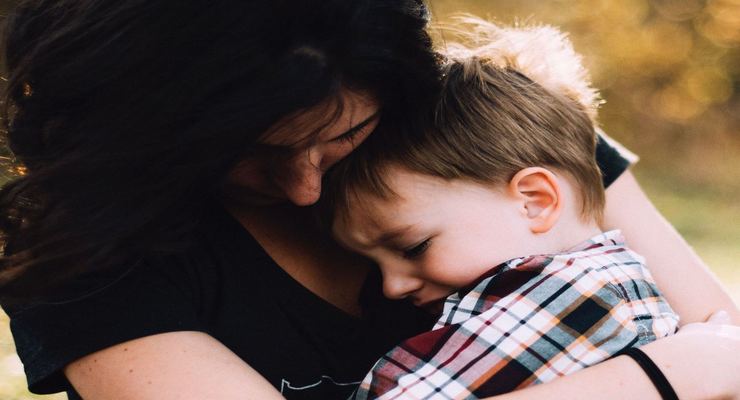One evening, while sitting in the local park with my children, the ice cream truck slowly drove up, playing that infamous and decidedly repetitive Ice Cream Truck Song. My son, deliriously happy to hear this, began dancing around, smiling from ear to ear. His dance moves, although not on the beat, were absolutely adorable.
If he were older, he would have looked like someone who had a few too many, but as a little boy, it fit him just right. I stared at him and smiled to myself when all of a sudden, a boy on a bike collided with him. I saw it coming and tried to save him, but I was too late. They both fell.
Both children were scared, but my son was hurt: scraped and bruised knee and face and a bit traumatized. My heart broken, I carried him away to check him out, saying to myself, “I can’t believe I didn’t stop this. If I were just a few seconds quicker, this whole thing would have been avoided.” I then noticed I was getting a little worked up, blaming first the other boy, then myself, then then the boy again. Ultimately, the blame was back on me. I knew it was an accident, but I couldn’t help feel responsible for not being able to stop this.
Parents, how often do we do this? How often do we blame ourselves for things beyond our control and play the “what if” game?
For a few moments, I was so concerned about how I failed that I wasn’t very present for my son. My own anxiety and fear overwhelmed me, and it took me away from the present moment. He needed me to comfort him and be there in those moments. I was there physically, but my mind was elsewhere. As a mother, it’s very painful to watch my children be hurt or sad or have any other difficult emotion. I wish I could stop their pain, hurt feelings, sore tummies, and bad days, but I just can’t. No one can.
We can’t control the future or change the past. But in letting go of our own self-criticism and shame, we can work on being more present and expressing to our children that we love them and are there for them.
Even on days when that is difficult, it’s important to remember that we are still there to comfort them. Our children still know they can count on us. That is what my son wanted. He knew he could come to me not to change the event or save him, but rather to comfort, listen, and of course, provide a band-aid.
As parents, we sometimes forget that even when we’re not entirely present, we are there providing the feelings of safety, comfort, and trust in our children that they so clearly need. And they know if something happens, they can turn to us in a time of need, which gives them the tools to develop trust, empathy, and connection in their later years.



